“Only let this one tear-drop, this Taj Mahal,
glisten spotlessly bright on the cheek of time,
forever and ever.” – Tagore
Let me start this post with a confession – I’ve never been to the Taj Mahal. (I know, right?)
Visiting this majestic monument is like a rite of passage for Indians as well as tourists visiting the country and I reaaally hope to cross it off my bucket list soon!
Rabindranath Tagore calls it a teardrop on the cheek of eternity. Part of the Taj Mahal’s beauty derives from the story that the stones embody. It’s a tomb for the dead wife of a powerful emperor, but it’s also a monument of love that would be remembered throughout the ages.
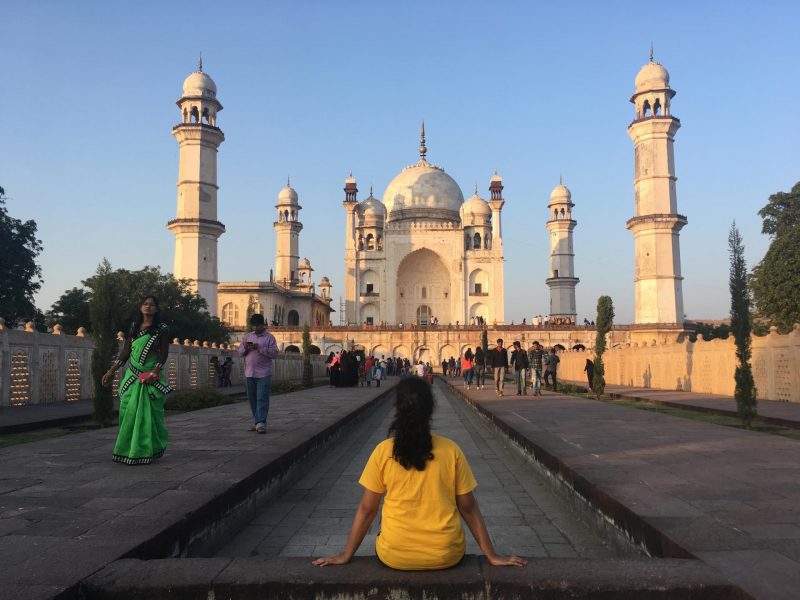
Over a thousand kilometres down south stands ‘the other Taj Mahal.’ One that lives in the shadow of its counterpart but is also a symbol of love. Built by none other than Shah Jahan’s grandson aka. Aurangzeb’s son – Prince Azam Shah for his mother, Rabia Durani.
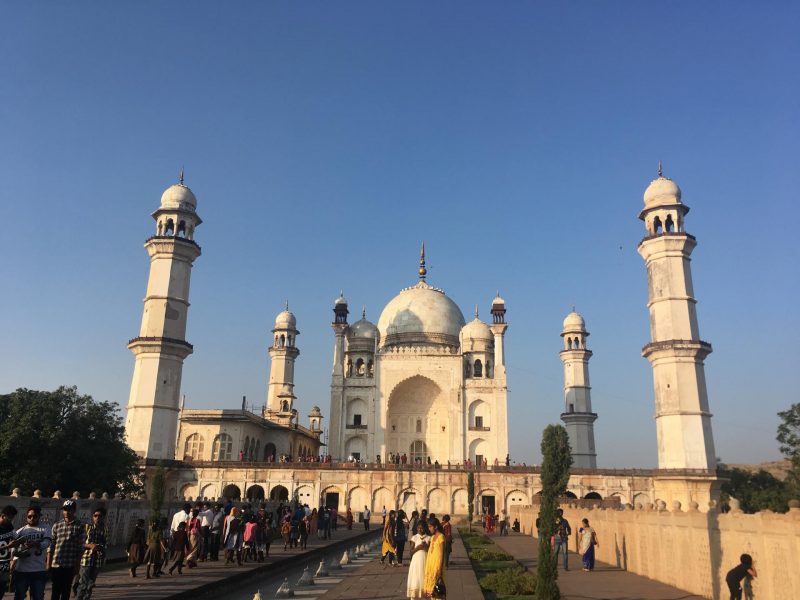
When my cousins wanted to go to Aurangabad, I wondered what there could possibly be for them to see there. Ajanta and Ellora caves are historical monuments as well, but to be honest, caves aren’t something I’d travel to see (unless I can spend some quality cousin-time with my peeps) When I saw Bibi Ka Maqbara, however, I got excited.
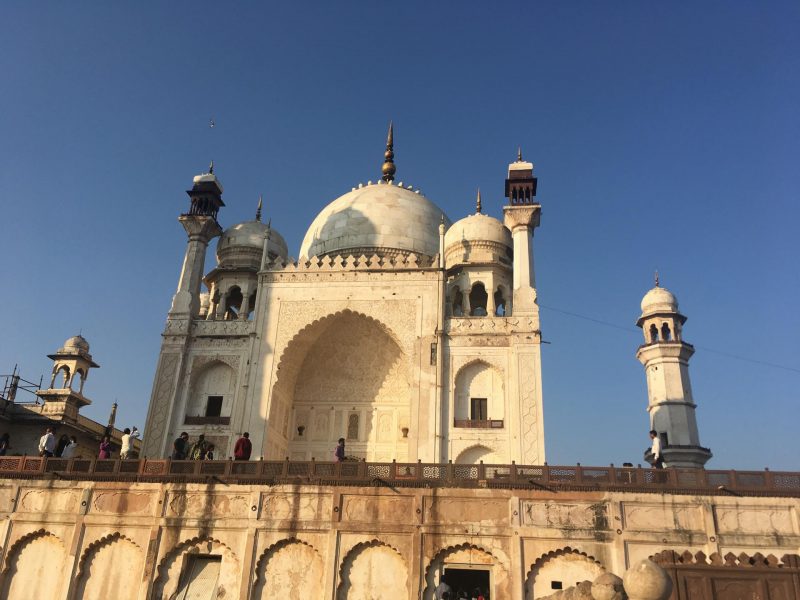
At first glance, it does look like a smaller, compressed version of the Taj Mahal, made not entirely of glistening white marble, but a combination of marble and plaster. It fails to compare with the exquisite poetry that is the Taj Mahal, but is at best, a poor shadow of the masterpiece.
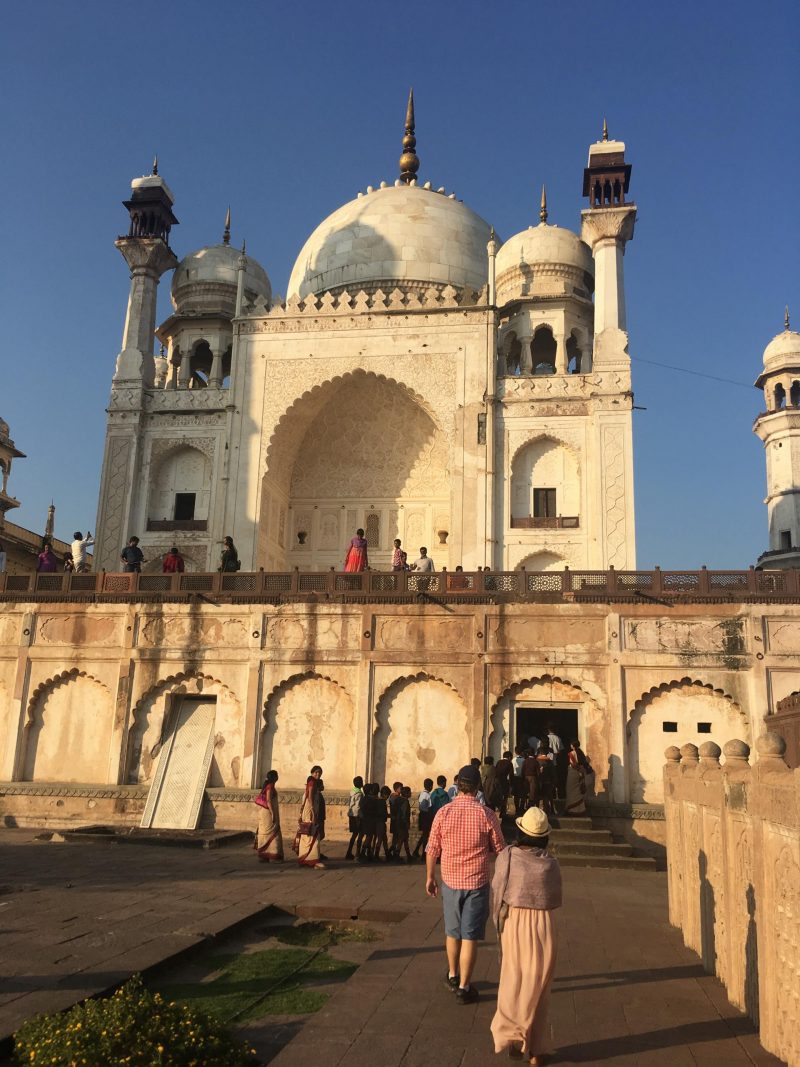
Aurangzeb, Shah Jahan’s son vowed to live a life of austerity, away from the riches of the kingdom, a decision that deprived his son of the wealth he would have inherited. One can’t help but wonder if his son, Prince Azam Shah, had access to all that wealth, would the ‘Taj of the Deccan,’ have been any different? Unfortunately, he lacked the treasury his grandfather had access to and the skilled labour that it bought.
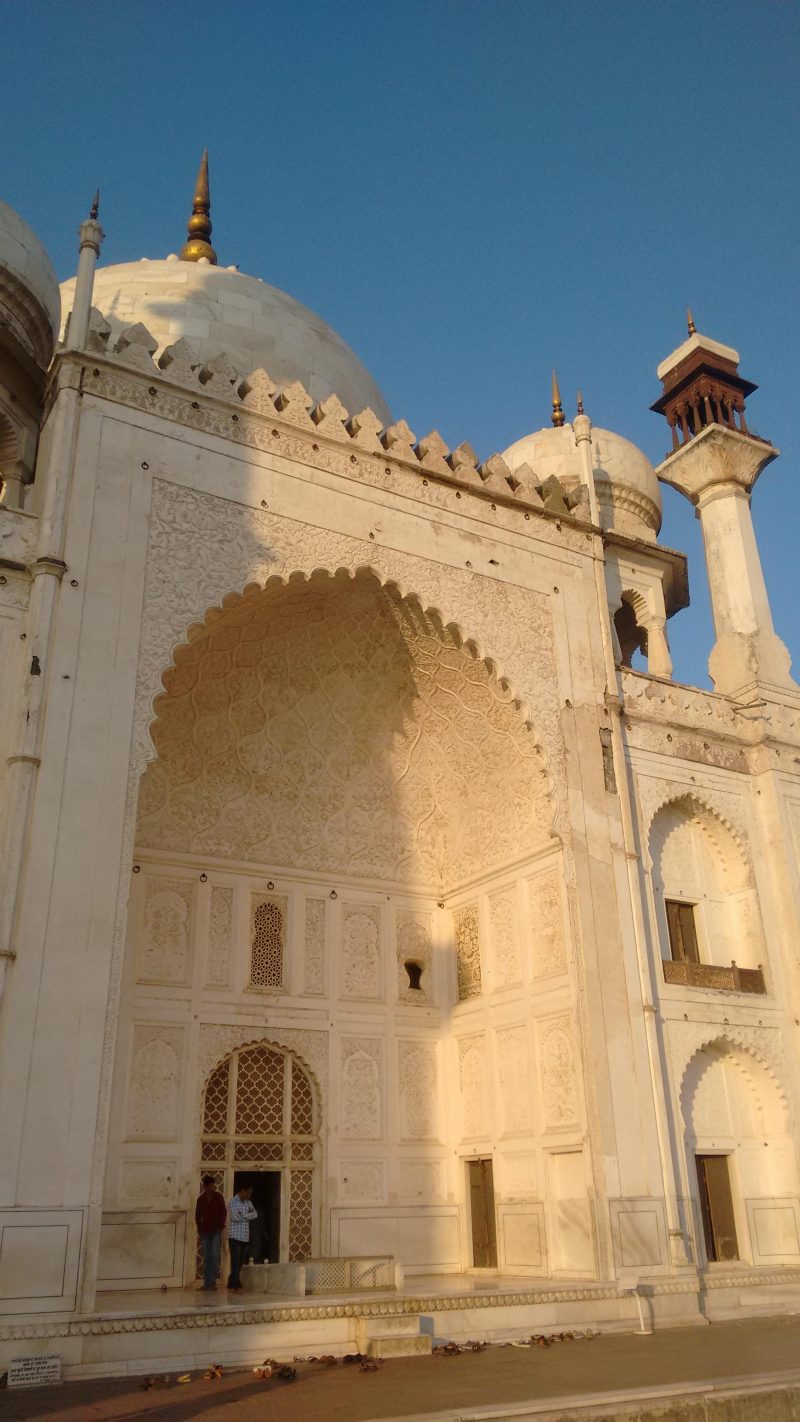
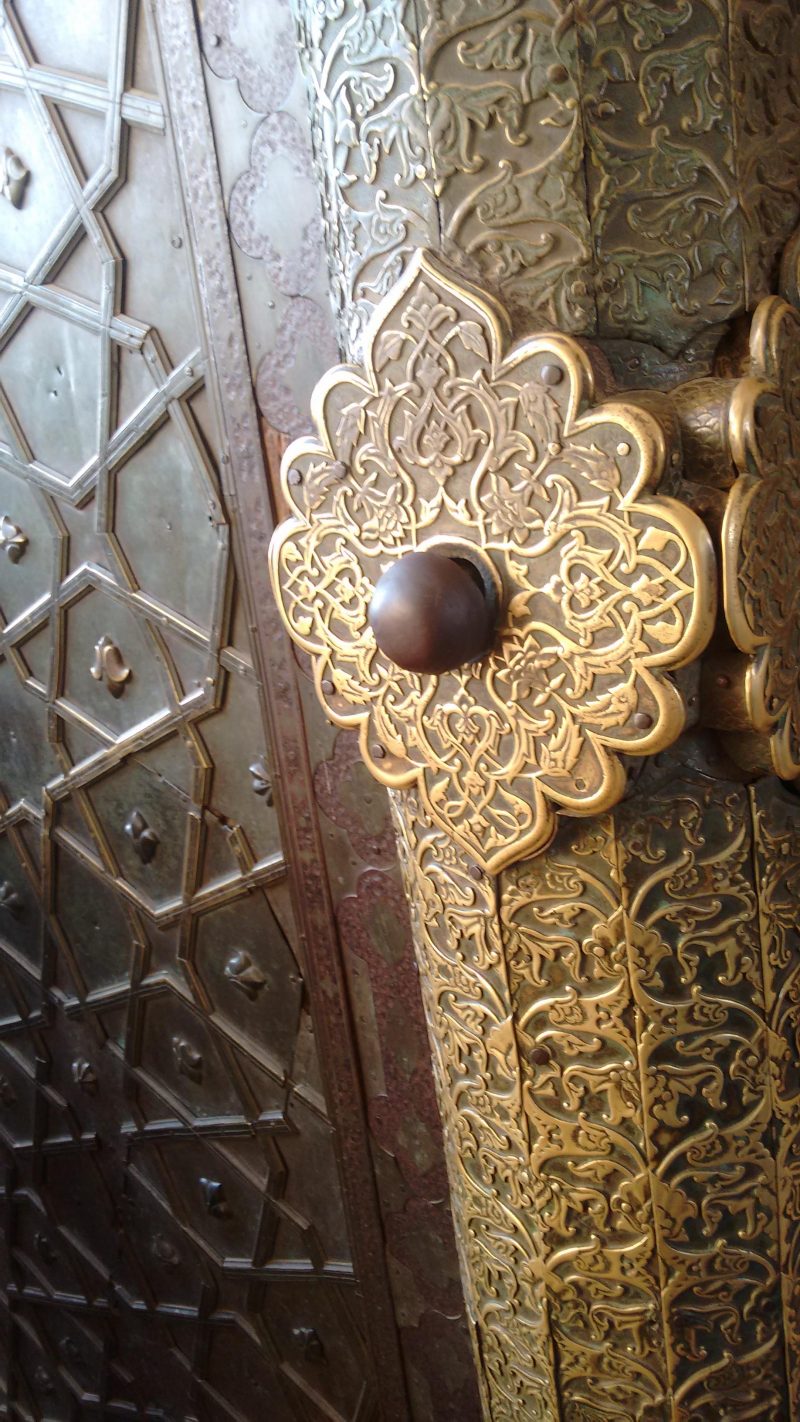
The main entrance is embellished with a beautiful foliage design on a brass plate on wood. Just like the Taj Mahal, this mausoleum too stands on a raised platform surrounded by a garden and fountains, with four minarets in the four corners. The garden is enclosed by high crenelated walls and open pavilions on three sides. One can approach it by a flight of steps from three sides. However, the main onion dome is smaller in size as compared to the Taj, and the minarets are shorter.
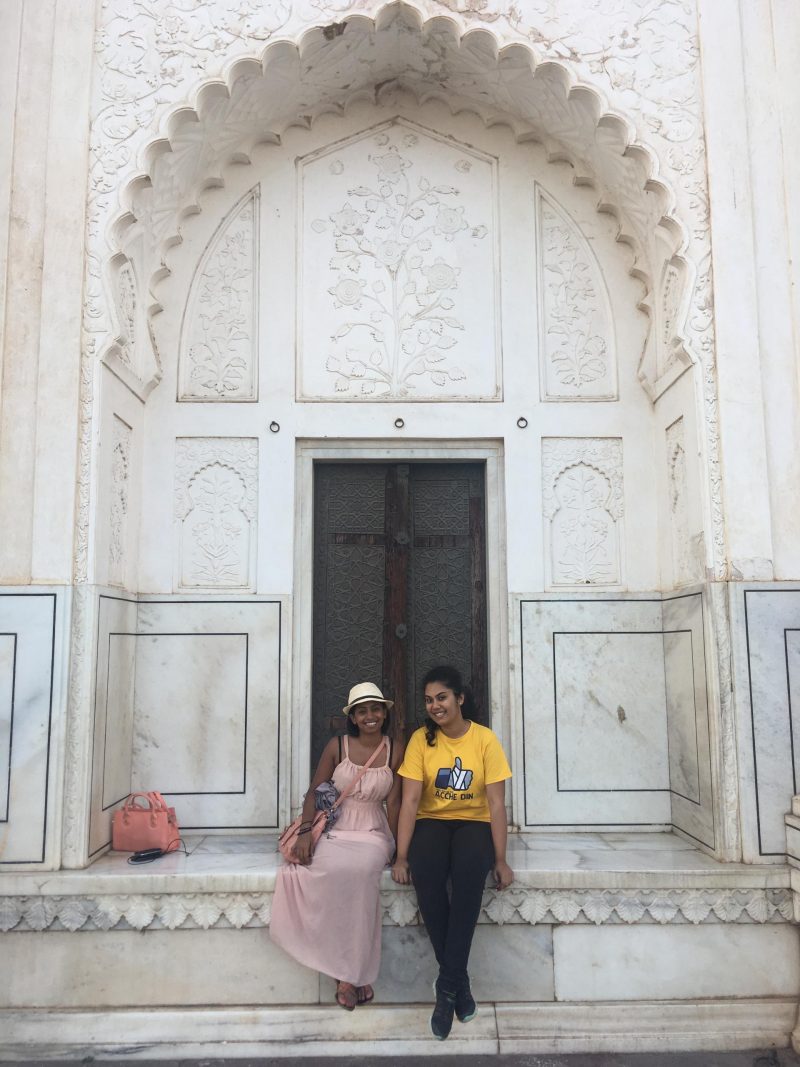
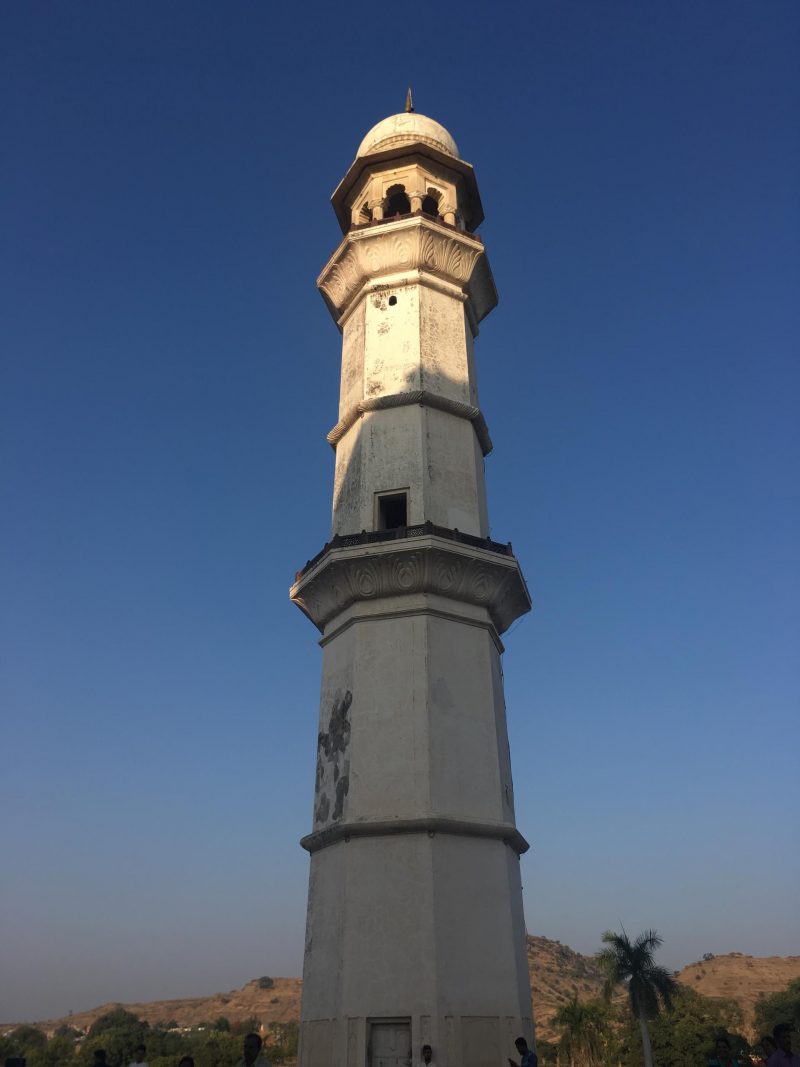
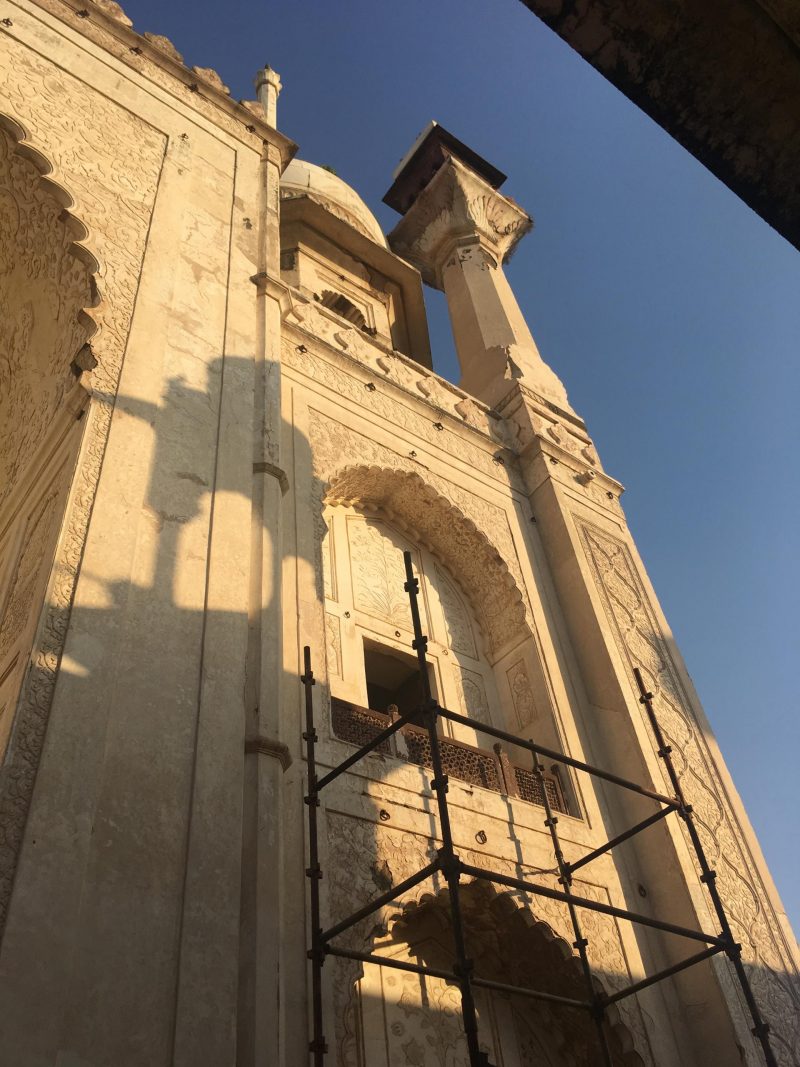
Once you’re inside the mausoleum and turn your eyes upward, you’re greeted with a jaw-dropping, intricate work on the marble dome. Looking down, one can see the tomb with the mortal remains of the queen draped in green velvet. Muslim graves often turn into places of worship. People make a wish and leave an offering of money on the grave. When I looked down upon Rabia Durani’s grave, it took me a while to figure out that what I was looking at was vast amounts of money – coins and notes in various denominations. Since the Archaeological Survey of India takes care of the site, and unlike the traditional dargah where money does to feed the poor, I wonder where this money goes.
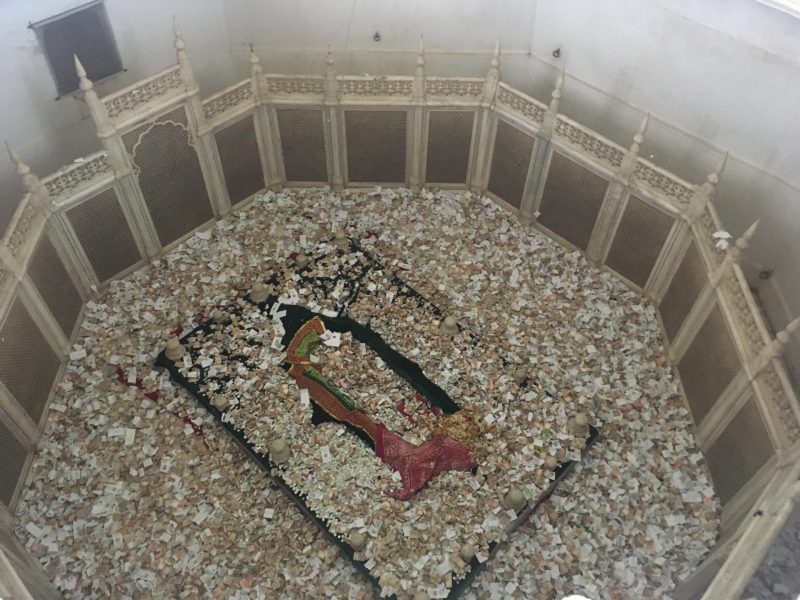
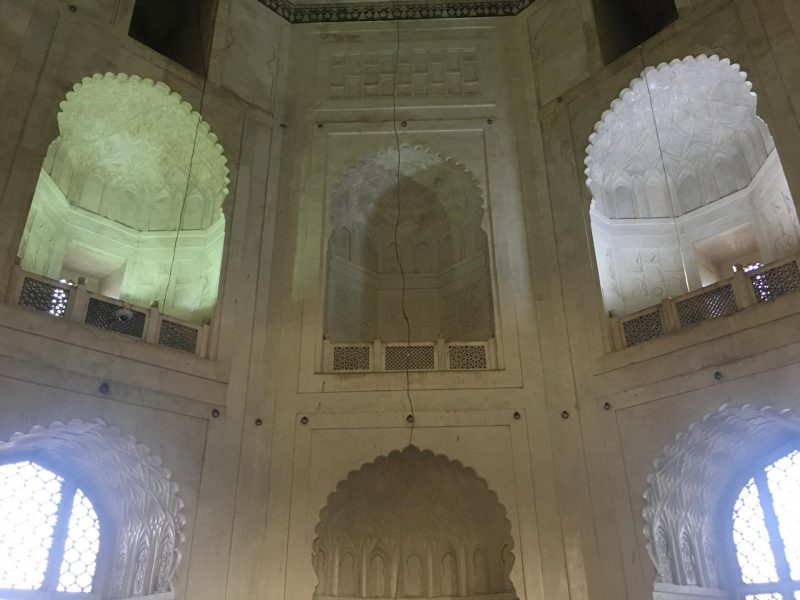
The walls itself are duller in appearance and the lack of good workers and material clearly shows. What cost Shah Jahan’s Taj Mahal a staggering 3 crores to build way back in 1648 cost Azam Shah’s Bibi Ka Maqbara a paltry 7 lakhs, 30 years later.
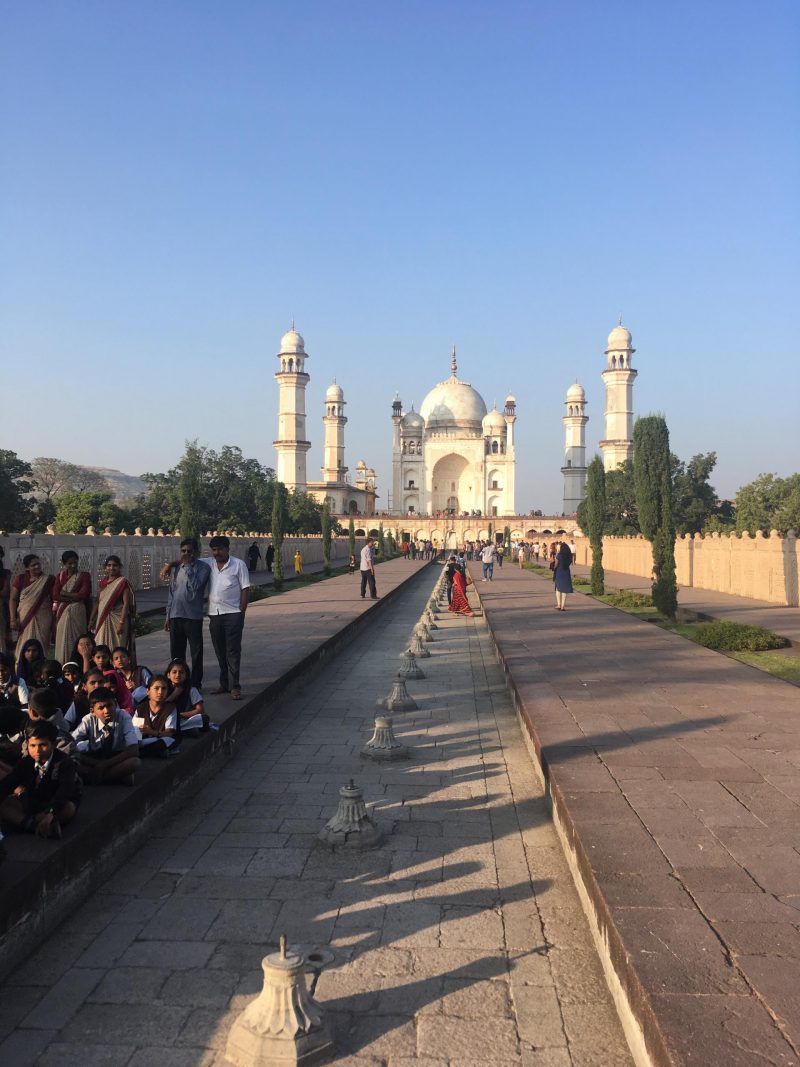
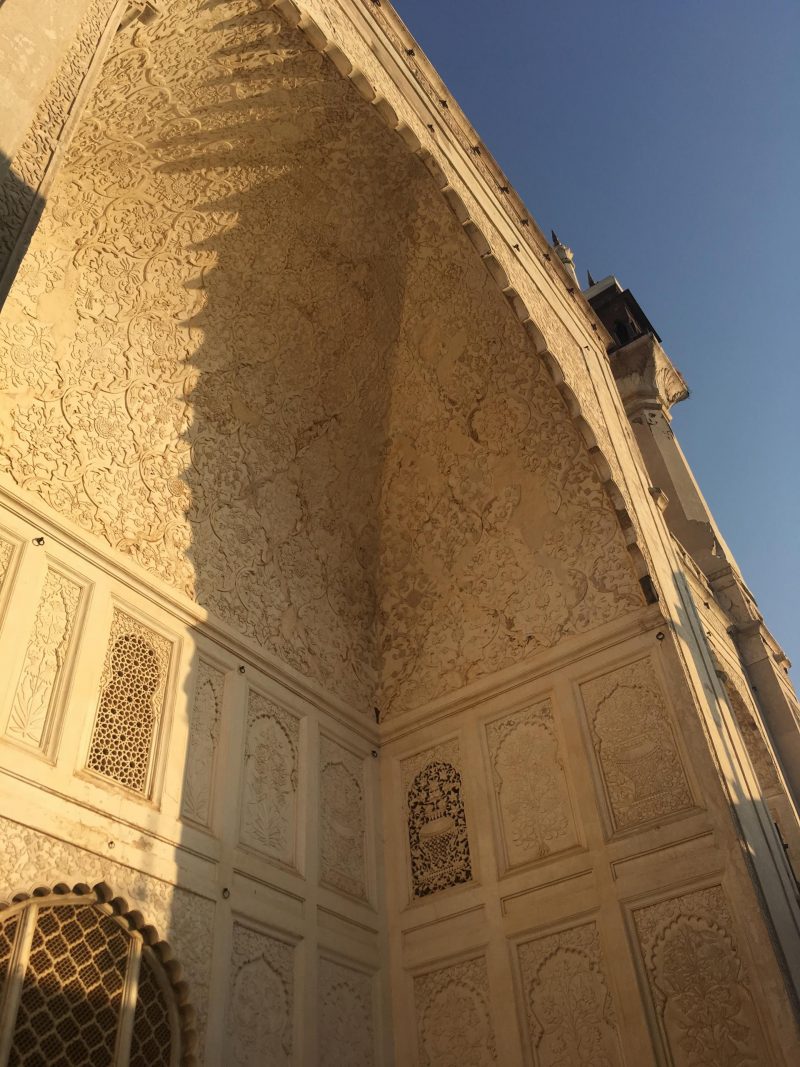
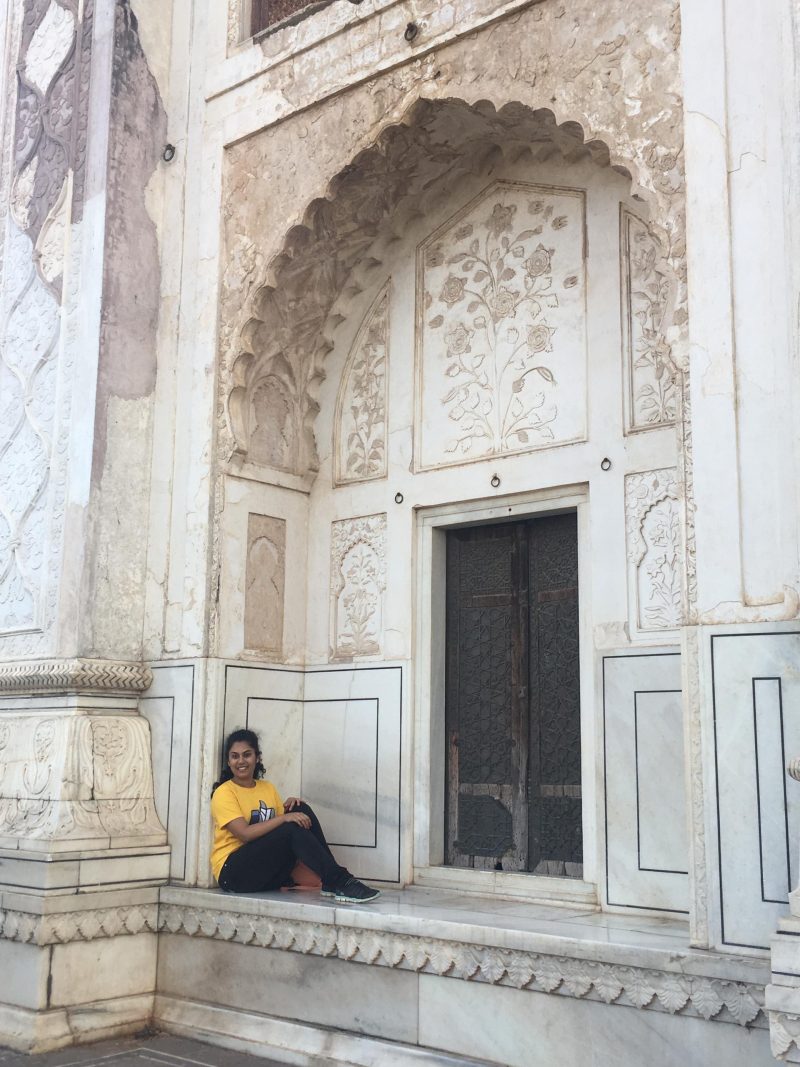
When seen by itself, it is a beautiful piece of work. But it pales in comparison to its famous fore-bearer. Foreigners wanting to visit the monument will need to pay a fee of Rs. 200, while the fee for Indians is Rs. 20.
Almost forgot to show you my favourite picture of the trip!!
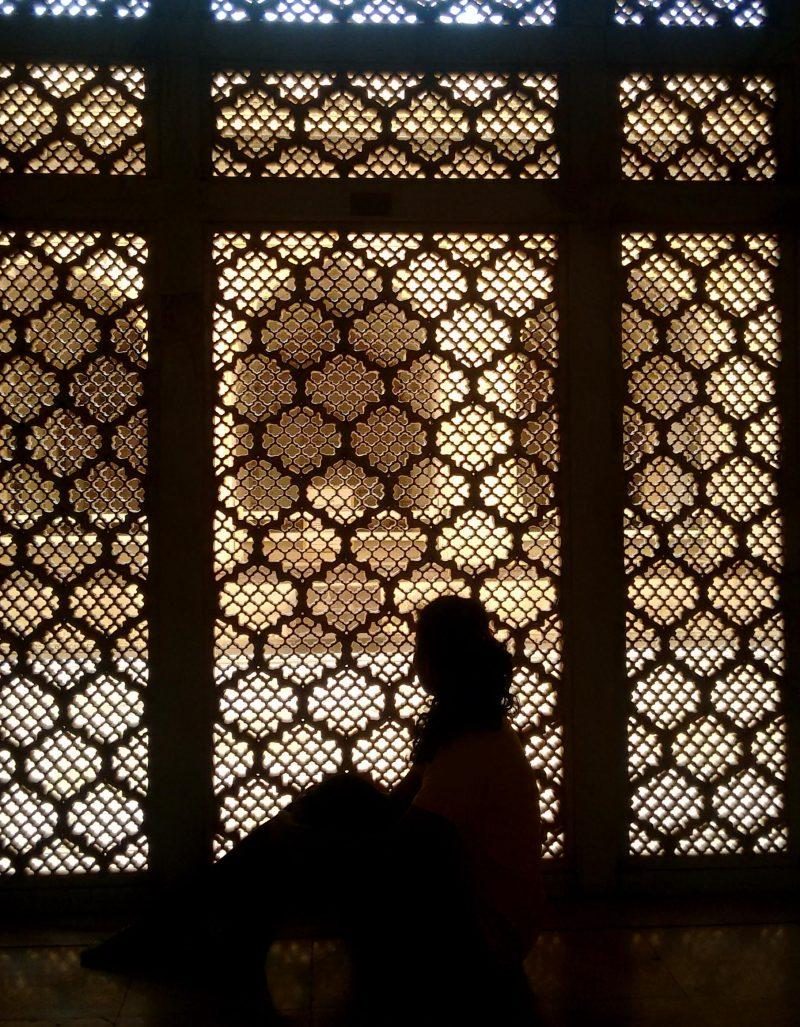
Let me know if you enjoyed reading this blog post! For those who like history, you may like to read about Agrasen ki Baoli in Delhi. I’ll also be giving you the deets on where I stayed and what else I saw in Aurangabad! See you on Facebook, Twitter, and Instagram!
Bye!

I soooo loved the post, i love interesting write up to read alobg with pictures, you have packed history and pictures so very well…loved it 🙂
Author
You made my day, Shweta! <3
exactly replica of Tajmahal .
Author
It is pretty deceptive, isnt it?
Loved reading every word in this post! The first time we had seen the pictures (that’s when we were still in school ;)) of Bibi ka Maqbara we though what had happened to Taj Mahal, why does it look as if its been stuck! But later we learnt that this one was in Aurangabad! Beautiful captures Jade, especially the last picture! 🙂
Author
Thank you TOTS! Glad you enjoyed it! I really love the work you do as well!
Beautiful captures.
When I went they had restoration work going on side pillar.
Author
Thanks Sapna! They were restoring some other part of it when I visited. Guess it needs constant maintenance
Beautiful shots of the monument.
Author
Thanks Rajesh!
Ashtonished ! It is really deceptive………… looks exactly like Taj Mahal…..
Good work………….